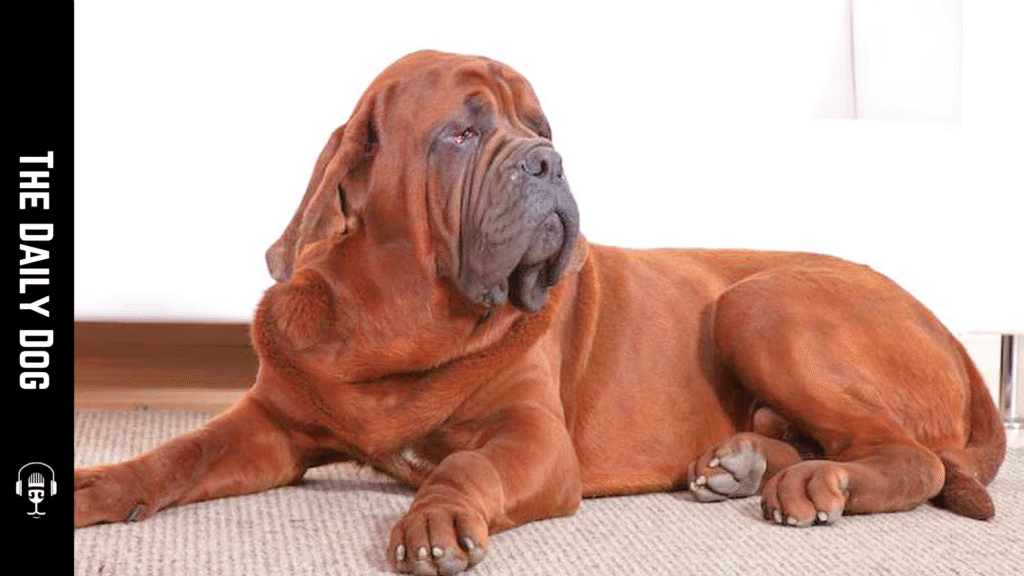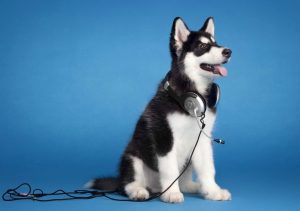The Korean Dosa Mastiff, also known locally as the Dosa Dog, is a powerful and noble breed that embodies strength, loyalty, and a rich cultural history. This ancient guardian breed has been a vital part of Korea’s heritage for centuries, revered for its impressive stature and protective instincts. In this article, we will explore the origins, characteristics, temperament, care requirements, and the role of the Korean Dosa Mastiff in modern times, providing valuable insights for prospective owners and dog enthusiasts alike.
Origins and History of the Korean Dosa Mastiff
The Korean Dosa Mastiff’s roots trace back thousands of years in Korea, where it was selectively bred for its guarding abilities and loyalty. Historically, these dogs served as protectors of livestock, homes, and even sacred sites. Their ancestors likely include ancient Molossian breeds brought to Korea through trade routes, which were then refined over generations to suit the specific needs of Korean communities.
Throughout Korea’s tumultuous history, the Dosa Mastiff proved to be a reliable defender against intruders and predators. Their formidable presence and unwavering loyalty made them highly valued by farmers, aristocrats, and military figures. Although the breed’s numbers declined during periods of modernization, recent efforts by dog enthusiasts and preservationists have rekindled interest in maintaining the breed’s purity and heritage.
Today, the Korean Dosa Mastiff symbolizes Korea’s cultural identity and serves as a living link to the country’s ancient past. Recognized by breed enthusiasts and some dog breed organizations, the Dosa Mastiff continues to be celebrated for its noble appearance and protective nature.
Physical Characteristics of the Korean Dosa Mastiff
The Korean Dosa Mastiff is a large, muscular dog with a commanding presence. Its physical attributes are designed for strength, endurance, and protection. Here are some key features:
- Size: Males typically stand between 24 to 28 inches at the shoulder, with females slightly smaller. The weight ranges from 90 to 130 pounds, making it a truly formidable breed.
- Build: The breed boasts a broad chest, a strong neck, and a powerful back. Its body is well proportioned, giving it a balanced and athletic appearance.
- Head: The head is large and broad, with a pronounced stop. The skull is wide, and the muzzle is strong and slightly tapered.
- Eyes: Dark, almond-shaped eyes convey intelligence and alertness. They are expressive, often reflecting the dog’s protective instincts.
- Ears: The ears are medium-sized, set high, and can be cropped or left natural, depending on regional preferences.
- Coat: The coat is short, dense, and coarse, providing protection against various weather conditions.
- Color: The breed’s coat colors include shades of brindle, black, fawn, and occasionally red, with markings that emphasize its muscular build.
The breed’s imposing appearance is complemented by its confident stance and alert expression, making it a natural guardian and deterrent to intruders.
Temperament and Behavior
The Korean Dosa Mastiff is renowned for its loyalty, intelligence, and protective nature. These dogs are naturally wary of strangers, which makes them excellent guardians. However, with proper socialization and training, they can become well-mannered companions.
Loyalty and Bonding
This breed forms strong bonds with its family members. They are affectionate with their owners and often display a gentle, protective side towards children. Their loyalty makes them dependable protectors, often putting themselves between their loved ones and potential threats.
Protective Instincts
The Dosa Mastiff’s guarding instincts are deeply ingrained. They are vigilant and instinctively alert to unfamiliar sounds and movements, which makes them natural watchdogs. Their imposing presence alone often discourages intruders.
Intelligence and Trainability
Intelligent and quick learners, these dogs respond well to consistent, positive reinforcement training methods. Early socialization is critical to ensure they develop appropriate manners around strangers and other animals. Due to their strong protective instincts, they require a confident and experienced owner who can establish clear leadership.
Socialization and Compatibility
While they thrive as protectors, Korean Dosa Mastiffs may be reserved or aloof with strangers. Proper socialization from a young age helps prevent aggressive tendencies. They are generally good with other dogs and pets when raised together but can be territorial.
In a family setting, they are loyal and protective, making them excellent companions for experienced dog owners who understand their needs and temperament.
Care and Maintenance
Caring for a Korean Dosa Mastiff involves providing proper nutrition, regular exercise, and routine health care. Their large size and active nature mean they require a dedicated owner committed to their well-being.
Nutrition
A balanced diet formulated for large, active breeds is essential. High-quality dog food with appropriate protein, fat, and carbohydrate levels supports muscle development and overall health. Portion control is important to prevent obesity, which can strain their joints and health.
Exercise Needs
Daily exercise is crucial for maintaining physical and mental health. Long walks, play sessions, and mental stimulation activities help prevent boredom and destructive behaviors. Despite their size, Dosa Mastiffs enjoy activities like obedience training, agility, and even guarding exercises.
Grooming
The breed’s short coat requires minimal grooming. Regular brushing helps remove loose hair and maintains coat health. Bathing should be done as needed, and routine ear cleaning and dental care are important for overall health.
Health Considerations
Like many large breeds, the Dosa Mastiff is prone to certain health issues, including hip dysplasia, elbow dysplasia, and cardiac problems. Regular veterinary check-ups, a healthy diet, and maintaining an optimal weight are key to ensuring a long, healthy life.
Training and Socialization Tips
Training should start early, emphasizing positive reinforcement techniques. Consistency, patience, and firm leadership are vital to managing their protective nature. Socialization should involve exposure to different people, animals, and environments to foster confident and well-adjusted behavior.
Obedience classes and professional guidance can be beneficial, especially for first-time dog owners. Remember, the goal is to develop a confident, disciplined, and socialized dog that can serve as both a guardian and a loyal family member.
The Role of the Korean Dosa Mastiff in Modern Society
While their traditional role was guarding and protection, today, the Korean Dosa Mastiff is increasingly appreciated as a family protector and companion. Their imposing presence makes them natural deterrents against intruders, and their loyalty ensures they are dedicated watchdogs.
In Korea, efforts are ongoing to preserve the breed’s cultural significance. Breed clubs and enthusiasts participate in shows, preservation programs, and awareness campaigns to promote responsible ownership and breed health.
Many owners value the breed’s unique combination of strength and loyalty, making them suitable for experienced dog owners who can provide leadership and socialization.
The Korean Dosa Mastiff is a majestic breed that embodies the rich cultural history of Korea. Its impressive stature, guarding instincts, and loyalty make it a formidable protector and a devoted family companion for those prepared to meet its needs.
If you’re considering adding a Korean Dosa Mastiff to your family, ensure you are committed to providing proper training, socialization, and health care. This breed rewards dedicated owners with unwavering loyalty and a sense of security that is hard to match.
By understanding and respecting their ancient origins and natural instincts, owners can enjoy a rewarding relationship with this noble guardian breed. The Korean Dosa Mastiff continues to stand as a symbol of Korea’s rich heritage, embodying strength, loyalty, and an enduring spirit.










